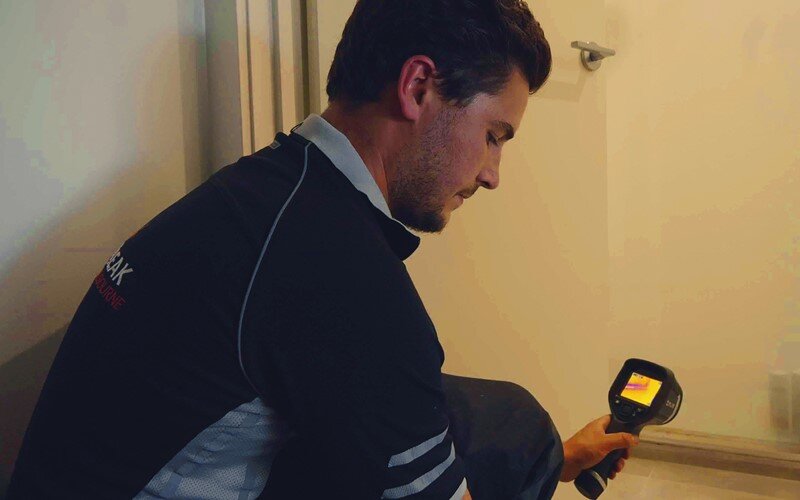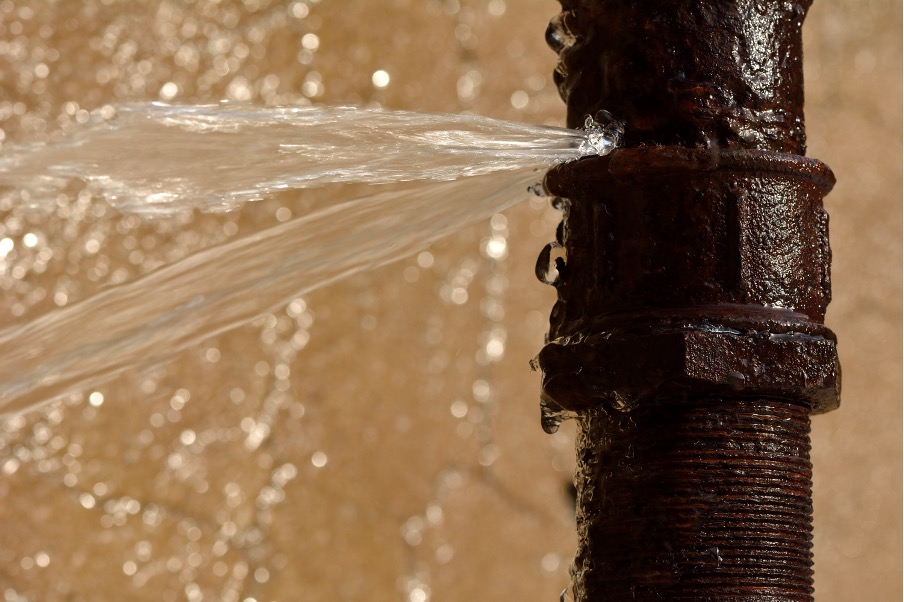How to Inspect If Your Residence Has a Covert Leakage
How to Inspect If Your Residence Has a Covert Leakage
Blog Article
We have unearthed this post about Locating water leaks directly below on the net and concluded it made perfect sense to talk about it with you over here.

Early detection of leaking water lines can alleviate a prospective calamity. In addition to saving you cash, it will minimize the stress and also aggravation. The moment you locate a leakage, calling your plumber for repairs is the best service. Some small water leakages may not be noticeable. Below are some hacks that help if you can not spot it with your naked eyes.
1. Analyze the Water Meter
Examining it is a surefire way that helps you find leakages. If it relocates, that indicates a fast-moving leakage. This means you might have a slow-moving leak that might also be underground.
2. Inspect Water Usage
Assess your water expenses as well as track your water intake. As the one paying it, you need to see if there are any kind of inconsistencies. If you detect sudden changes, regardless of your intake coinciding, it means that you have leakages in your plumbing system. Bear in mind, your water costs must drop under the very same range monthly. An unexpected spike in your costs suggests a fast-moving leakage.
At the same time, a stable boost monthly, despite having the very same routines, reveals you have a sluggish leakage that's additionally gradually escalating. Call a plumber to thoroughly check your residential property, particularly if you feel a warm location on your floor with piping below.
3. Do a Food Coloring Examination
When it comes to water consumption, 30% comes from toilets. If the color in some way infiltrates your bowl during that time without flushing, there's a leak in between the storage tank and bowl.
4. Asses Exterior Lines
Don't forget to inspect your exterior water lines as well. Must water seep out of the link, you have a loose rubber gasket. One little leak can lose lots of water and also surge your water costs.
5. Evaluate and also Analyze the Circumstance
House owners should make it a practice to examine under the sink counters and also inside cabinets for any type of bad odor or mold and mildew development. These 2 red flags indicate a leakage so punctual attention is needed. Doing routine inspections, also bi-annually, can save you from a significant problem.
A lot more significantly, if you recognize your house is already old, maintain a watchful eye on your heating units, pipes, pipelines etc. Look for discolorations and weakening as most pipelines as well as devices have a life expectancy. They will certainly additionally normally weaken because of deterioration. Do not wait for it to rise if you presume leaking water lines in your plumbing system. Call a specialist plumber today so you don't end up with a horrible mess in your house.
Early discovery of leaking water lines can alleviate a possible calamity. Some tiny water leakages might not be visible. Inspecting it is a guaranteed method that aids you find leaks. One tiny leakage can lose lots of water and spike your water costs.
If you think dripping water lines in your plumbing system, do not wait for it to escalate.
How to Know If Your Home Has a Hidden Leak
Water Meter Reveals Inexplicable Water Usage
If you’d like to test whether or not there’s a leak somewhere in your home, you can do this using your water meter. Here is how to conduct the test:
Don’t use any water in your home for at least 30 minutes; this also means not turning on faucets or water-using appliances.
Go outside, and check your water meter for activity.
If your water meter shows that there was activity, even though no one was using any water, this proves that there is a leak in your home.Visible Mold or Mildew Growth
Leaks behind walls create moist, dark environments that allow mold and mildew to grow and thrive. Eventually, you might see mold growth forming on the wall closest to a hidden leak.
If mold is growing in an area that receives a high amount of moisture, such as a bathroom, it may simply be an indication that better ventilation is needed. However, if you see mold growth on a wall or the ceiling in an area where you would not expect, you probably have a hidden leak.
Musty, Mildew Odor
Sometimes you might not be able to see the mold or mildew that is growing as a result of a leak. However, the smell can give the problem away just as easily. If you catch a whiff of something musty, there’s a good chance that old water is collecting somewhere in your home that you can’t see.
Stained/Warped Walls, Ceilings, or Floors
When your home soaks up water, a variety of red flags can become visible, including ceiling stains, bubbling drywall, warped walls, and sagging floors. While these issues can be caused by excess humidity, they can also be signs that a pipe or plumbing connection has started leaking behind your walls.
Inexplicably High Water Bill
After a while, you get a general sense for what your water bill should be. If you own a pool or sprinkler system, your bill will tend to be higher during summer. However, if you receive a water bill that seems especially high, and you can’t figure out what caused it, then you may have a hidden leak somewhere that’s increasing your bill.
https://www.plumbingjoint.com/blog/2019/july/how-to-know-if-your-home-has-a-hidden-leak/

I hope you liked our topic about Leaking water lines. Thanks a lot for taking a few minutes to read through our short article. Make sure you take the opportunity to share this post if you enjoyed it. Thank-you for taking the time to read it.
Report this page